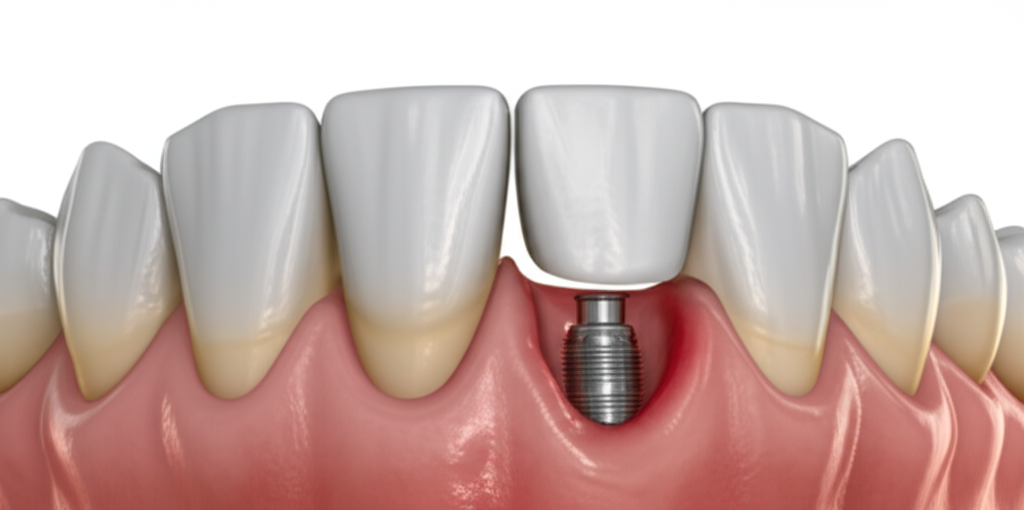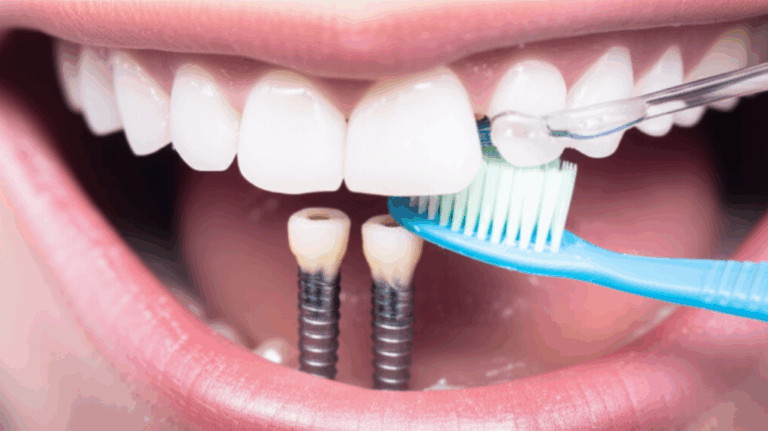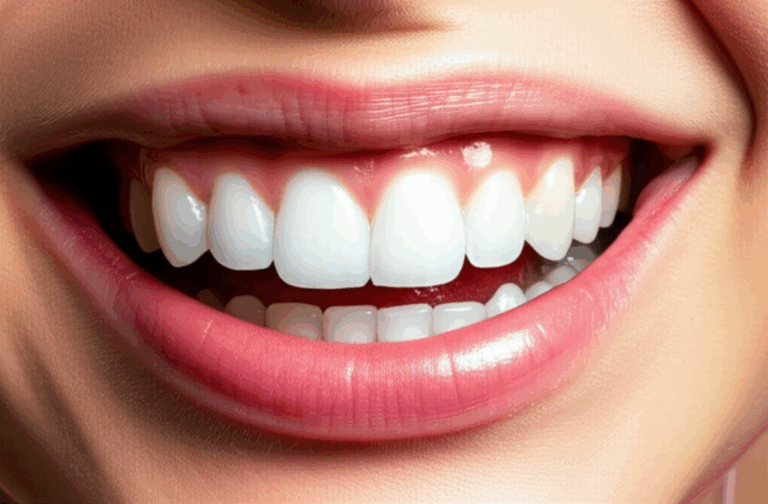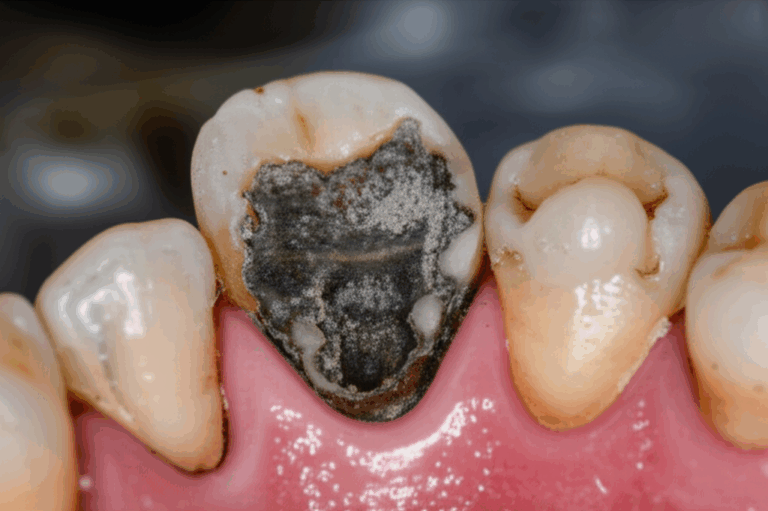
How Smoking Devastates Dental Implant Success: Risks, Complications & What You Can Do
When you light up a cigarette, you might not realize just how much you put your dental implant investment at risk. Smoking can mess up your implant results fast—but there’s good news too. In this guide, we’ll show you why smoking and dental implants don’t go together, what kinds of problems can happen, and how you can protect your new teeth. If you’re thinking about dental implants or already have them, this article can save you pain, money, and trouble.
Table of Contents
Why Care About Smoking and Dental Implants?
It’s not just about having a nice smile. Dental implants are a big investment in your health, time, and cash. If you’re a smoker, you should know exactly how this habit can ruin your new teeth.
Picture this: You get a dental implant because you want to eat, speak, and look better. Now imagine the next year—your implant is wobbly. Gums are red and puffy. Pain won’t stop. Your dentist says, “We have to take the implant out.” All that time and money, gone.
If you smoke, your chances of losing implants jump way up. Knowing this means you can change what you do, or at least watch out for early signs of problems.
What Are Dental Implants and How Do They Work?
Dental implants aren’t magic—they’re science. Here’s how they work:
- Dental implants are small titanium screws that go in your jawbone.
- Over a few months, the bone grows around the implant in a process called osseointegration.
- The implant becomes a strong base for a tooth crown, a bridge, or a denture.
They look, feel, and work like real teeth. That’s why many people love them.
But implants don’t just sit in your mouth. They need healthy gums, solid bone, and a body that can heal and fight off germs. If anything gets in the way—like smoking—it can all fall apart.
How Does Smoking Affect Implant Healing?
Here’s a simple story:
A patient, Mary, came to our implant dental laboratory after a big surgery. She was excited but kept smoking—“I’ll slow down soon.” Her healing took too long, her mouth hurt more, and soon her implant got loose. Why? Smoking slowed her body’s healing and let germs in.
Here’s how that happens:
- Nicotine in cigarettes makes your blood vessels smaller (this is called vasoconstriction).
- Less blood means less oxygen and fewer good things reach your gums and bone.
- The cells needed for healing—osteoblasts—don’t work as well.
- Your immune system gets weaker, so bacteria can cause infection.
- Even new habits like vaping or using e-cigarettes can make healing worse because of toxins and heat.
You can find out more about why this matters for teeth health if you want the bigger picture.
Why Do Smokers Have More Problems With Dental Implants?
It’s not just slower healing. Smoking sets off a domino effect:
That’s why dentists call smokers “high risk” for dental implant surgery.
What Are the Exact Risks for Smokers?
Let’s break it down plain and simple:
- You are 2 to 4 times more likely to lose your implant than someone who doesn’t smoke.
- Implants in smokers might look okay at first, but problems come up later, like gum infections (peri-implantitis) and loose implants.
- Smokers are more likely to get gum disease that can attack the bone around the implant.
- Bone grafts (sometimes needed before you get an implant) are less likely to heal the right way.
- Infection risk goes way up. Signs of infection: swelling, pus, pain, and a gross taste in your mouth.
Here’s a table showing what can go wrong:
| Problem | Non-Smokers | Smokers |
|---|---|---|
| Long-term implant survival (5-10 years) | 95-98% | 80-90% |
| Implant infection (peri-implantitis) | 5-15% | 20-50% |
| Early implant failure | low risk | 2~4 times higher |
| Bone loss after one year | ~0.1mm | ~0.3-0.5mm |
| Poor gum healing | rare | common |
Source: Based on studies about dental implants (see references below).
How Likely Is Implant Failure If You Smoke? (With Statistics)
I’ve seen a lot of patients make good choices—and a few make painful ones. Here’s what science says:
- In study after study, implants in smokers fail much more often.
- One review found that up to 20% of implants in smokers fail within the first 5 years.
- Gum infection rates (peri-implantitis) can go as high as 50% in smokers, while only 10% in non-smokers.[^1]
- Smokers lose bone faster, sometimes needing more surgeries or even having the implant taken out.
If you like numbers, here’s a quick chart:
| Group | 5-Year Success Rate | Risk of Gum Infection |
|---|---|---|
| Non-smokers | 97% | 10% |
| Smokers | 85% | 30-50% |
So it’s not just a little worse—it’s much worse for smokers.
What If I Want Dental Implants But I’m a Smoker?
To be honest: You deserve nice teeth, even if you smoke. But you have to be careful.
What you should do:
There are also labs using digital tools and special ceramics to help with fit and healing. If you want more info, check out this digital dental lab approach for customizing implants.
Can You Smoke at All After Surgery?
This is a common question: “Can I have just one cigarette?”
Short answer: The longer you don’t smoke, the better for your implant.
- At least, don’t smoke for 2 weeks after your surgery.
- For best results, don’t smoke for at least 1-3 months (sometimes even more).
- Some dentists won’t even do implants if you don’t stop smoking at least for a while.
Here’s why: Even a few puffs stop your body from sending blood and healing cells to your mouth. That’s why your dentist might ask you to quit, at least around the time you get your implant.
If you want to know more about dental care and keeping your implants safe, read about good dental care habits.
What Are the Signs of Implant Problems to Watch Out For?
Smokers (even people who used to smoke) need to stay alert for signs of trouble. Here are the main things to watch for:
Call your dentist right away if you notice these problems. Don’t wait! Moving fast can help save your implant.
What’s the Best Way to Keep Implants Safe if I Can’t Quit Smoking?
If quitting feels too hard, don’t give up hope. Here’s what you can do:
- Brush and floss every day. Get around the implant and your gums.
- Rinse with mouthwash. Helps kill germs, especially around implants.
- Go to your dentist more often. Every 3-4 months is smart for smokers.
- Ask about special cleaning tools. Sometimes electric brushes or tiny “interdental” brushes help clean spots you might miss.
- Watch for gum disease. If you want to know more about gum problems, this article explains warning signs and solutions.
A dental ceramics lab can suggest tough materials for crowns and bridges, which can sometimes help with problems for smokers.
And remember: Even cutting down on smoking can help your implants last longer. Every bit helps.
FAQs About Smoking and Dental Implants
Q: Is vaping safer than smoking for dental implants?
A: No, not really. Vaping still brings in nicotine and other bad stuff, which hurt healing and gum health.
Q: Can I get dental implants if I smoke?
A: Some dentists will still do implants for smokers, but the risks are higher. You get the best results if you quit, even if just before and after surgery.
Q: What happens if my implant fails because I smoked?
A: You might need surgery to take it out. Sometimes you can try again after healing and quitting, but the whole thing takes longer and can cost more.
Key Points to Remember
- Smoking and dental implants are a risky mix—failures happen two or three times more often.
- Most problems come from bad healing, infection, and bone loss.
- Tell your dentist if you smoke; it helps your care.
- Quitting (even for a few weeks) gives your implant a better chance.
- Stick with cleaning, mouthwash, and checkups—especially if you can’t quit yet.
- Look for warning signs: pain, bleeding, bad breath, swelling, or a wobbly implant.
- Your dental team and lab can help you keep your implant safe.
- Every time you smoke less, it helps your body—and your smile.
- Think about digital and ceramic lab options for the best fit and healing.
References:
[^1]: Chrcanovic BR, Albrektsson T, Wennerberg A. Smoking and Dental Implants: A Systematic Review and Meta-Analysis. J Dent.
[^2]: Dental Implants & Risks in Smokers, American Academy of Periodontology.
[^3]: The Effects of Smoking on Dental Implants, The International Journal of Oral & Maxillofacial Implants.
If you’re thinking about dental implants, get advice from your dentist and pick a top-notch lab—your smile is worth it!








